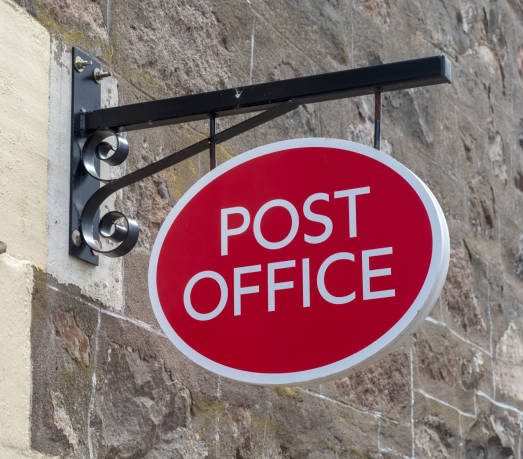One reason the anger from the financial crisis is still so widespread is that no banker went to jail and the public never had its day in court. Thus the widespread feeling that although the country has suffered a decade of stunted growth, the bankers responsible for the disaster have got away with it.
The regulatory bodies, the Financial Conduct Authority and its predecessor the Financial Services Authority could not find specific offences which they thought would support a successful prosecution.
Then the emphasis moved to civil actions brought by disgruntled shareholders and for a while this year it looked as though the Royal Bank of Scotland’s former chief executive Fred Goodwin, would be cross-examined as part of a shareholder action brought against the bank.
That never happened either, unfortunately, because RBS settled just before the trial was due to start.
However, something similar might happen this month with the directors of Lloyds in the frame. For some years now, the London law firm Harcus Sinclair has been preparing an action by shareholders against the then key directors of Lloyds bank over how it handled its acquisition of Halifax Bank of Scotland.
The trial should begin in the High Court next Wednesday. Having been battered over its disgraceful foot-dragging in dealing with the infamous fraud in its Reading branch, Lloyds risks getting another judicial mauling.
Assuming it goes ahead, shareholders will at last see some former chief staff in the dock: sometime chairman Sir Victor Blank, ex-chief executive Eric Daniels, ex-finance chief Tim Tookey, Truett Tate, who was head of wholesale and international banking, Archie Kane, former director of insurance and investments and Helen Weir ex-director of retail banking are all scheduled to appear and be cross-examined.
The central thrust of the shareholders’ case — and demand for compensation — is that the Lloyds board withheld material financial information about HBOS’s parlous financial condition while asking shareholders to approve the rescue deal. The action postulates that had shareholders known all the facts, they might have rejected the deal or at least demanded Lloyds pay a much lower price to buy. Either would have reduced the subsequent damage done to Lloyds’ own share price by the deal. Lloyds on behalf of its then directors disagrees.
You can really never know how these things will turn out in court but the shareholders have some useful ammunition on their side, not least contemporary submissions made to the Competition and Markets Authority. It turns out that, while Lloyds was telling shareholders the deal would be all right on the night, it was telling the CMA that it would be a calamity if the deal were blocked because HBOS would collapse.
It was in the public interest to allow the deal to proceed because if HBOS failed the Bank of England would lose £25 billion of emergency funding already injected and Lloyds would lose £6.5 billion of the £11 billion which it had also quietly made available. Neither these payments — nor an additional £10 billion borrowed by HBOS from the US Federal Reserve — appear to have been made known to shareholders at the time.
Lloyds says it disclosed everything it was legally required to disclose and might also reasonably argue that the end justified the means — that the board did the right thing in the public interest because an HBOS collapse might have brought down the entire UK banking system. That, however, would be an argument for HBOS to be rescued by the government with the cost borne by all taxpayers — not for HBOS to be rescued by Lloyds with the entire cost falling only on its hapless shareholders.
A company director’s duty is to act in the interests of shareholders not to help out the government, and one of the functions of regulation in its various forms is to ensure that this is indeed what happens.
Thus one of the interesting things which might also emerge from the trial is the extent to which the FSA, FCA, the Treasury, and indeed, Gordon Brown, who was prime minister at the time, acquiesced in (or resisted) a strategy which required Lloyds shareholders to be sacrificed for the greater good.
It should again be said that Lloyds throughout has argued that there is no substantive case to answer.
This stance probably informed their tactics which — since the case became public knowledge — seem to focus on running their legal costs up to astronomic levels (well over £20 million), in the belief that the escalating bill would force the other side to blink first and back off. Their small shareholders would be taught not to play poker with the big boys.
In earlier years this might have worked — the 6000 shareholder claimants were never going to have pockets deep enough to match a bank — but these days help of a kind is at hand.
The costs on the shareholder side — which are also in the region of £20 million and will rise a lot more as the trial unfolds — are being met by Therium Capital Management. This is one of those hedge funds which finances litigation in return for a 30% cut of the winnings, or three times the costs incurred, whichever is the bigger. It seems not to have dawned on Lloyds that the sides are much more evenly matched financially than you would expect.
With the court case imminent, Lloyds is now in a difficult position. Its image is already tarnished by the Reading affair. Even if it wins this case, victory will only come after a repeat airing of the events it would rather forget from 10 years ago which only bring further reputational damage to the bank. If it loses it will call into question its judgment in allowing the case to come to trial in the first place. And if it settles on the steps of the court it will find the cost significantly higher that it would otherwise have been because the hedge fund and lawyers will have to be paid off first.
It is often said that public company directors live in a bubble separated from the real world and remain unaware of what the public thinks of them and expects of them. That is certainly how Lloyds looks.









